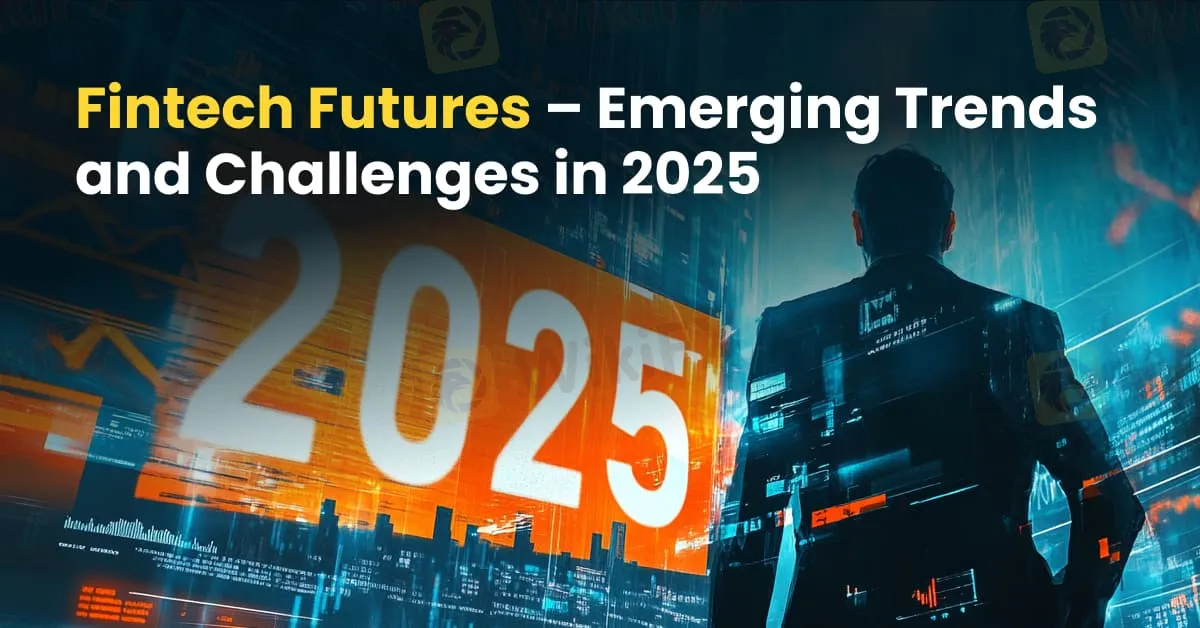简体中文
繁體中文
English
Pусский
日本語
ภาษาไทย
Tiếng Việt
Bahasa Indonesia
Español
हिन्दी
Filippiiniläinen
Français
Deutsch
Português
Türkçe
한국어
العربية
Fintech Futures – Emerging Trends and Challenges in 2025
Abstract:As the global economy recovers from recent upheavals and rapidly evolving technology underpins the digital transformation, the fintech landscape is poised for significant change. In 2025, fintech companies will capitalize on new technologies like blockchain, artificial intelligence (AI), and open finance while navigating a stricter regulatory environment. This article explores emerging trends driving fintech innovation, examines the challenges firms must overcome, and offers insights into how companies can remain competitive in an increasingly crowded market.

Introduction
As the global economy recovers from recent upheavals and rapidly evolving technology underpins the digital transformation, the fintech landscape is poised for significant change. In 2025, fintech companies will capitalize on new technologies like blockchain, artificial intelligence (AI), and open finance while navigating a stricter regulatory environment. This article explores emerging trends driving fintech innovation, examines the challenges firms must overcome, and offers insights into how companies can remain competitive in an increasingly crowded market.
- Blockchain Integration and Digital Assets
- Mainstream Adoption: Originally associated primarily with cryptocurrencies, blockchain technology is now being leveraged to improve transaction security, enable faster cross-border payments, and enhance transparency in financial processes.
- Smart Contracts: The integration of smart contracts streamlines activities like Know-Your-Customer (KYC) procedures and fraud prevention, reducing administrative overhead.
- Digital Asset Evolution: Alongside blockchain, digital assets and tokenization are reshaping capital allocation and investment strategies. As more firms embrace these technologies, digital assets are set to become a key revenue stream.
- Artificial Intelligence and Machine Learning
- Fraud Prevention and Personalization: AI-powered tools are increasingly deployed to detect unusual patterns, prevent fraud in real time, and deliver personalized financial advice. Large-scale investments in AI infrastructure are transforming risk management and customer service.
- Generative AI Growth: With growing interest in generative AI, fintech companies are exploring new applications from innovative content creation to automated decision making. However, increased use comes with rising regulatory and compliance challenges.
- The Evolution of Open Finance
- Expanding Data Sharing: Following in the footsteps of open banking, open finance is broadening the scope of data exchange beyond traditional banking services to cover insurance, pensions, and investment products.
- Enhanced Customer Control: Regulatory frameworks in the EU and the UK are evolving to provide consumers with greater control over their financial data while ensuring robust data security.
- Industry Collaboration: The drive toward interoperability, as seen in initiatives like the UKs open finance roadmap, supports innovation by enabling fintech firms to create richer, user-friendly digital ecosystems.
Conclusion
The fintech industry in 2025 stands at a pivotal moment. By harnessing technologies like blockchain, AI, and open finance, fintech companies can create more efficient, secure, and inclusive financial systems. However, these opportunities come with their own set of challenges, from increased regulatory demands to the need for robust cybersecurity and talent acquisition. Firms that can successfully innovate while maintaining compliance and customer trust will shape the future of finance in a post-pandemic, digital-first global economy.

Disclaimer:
The views in this article only represent the author's personal views, and do not constitute investment advice on this platform. This platform does not guarantee the accuracy, completeness and timeliness of the information in the article, and will not be liable for any loss caused by the use of or reliance on the information in the article.
Read more

Manual vs. Automated Forex Trading: Which One Should You Choose?
Both manual and automated forex trading have their strengths and weaknesses. Should you trade manually or use automated systems? Today’s article may give you some clues.

IFC Markets: The Broker With No License!!
When evaluating a forex broker, regulatory status is one of the most important indicators of credibility and investor protection. In the case of IFC Markets, WikiFX’s findings raise several red flags that potential traders should carefully consider before engaging with this platform.

How to Tell If the Forex Market Is Good to Trade Today?
Wondering if today is a good day to trade forex? Learn how to evaluate market conditions using volatility, session timing, technical clarity, and economic news—without relying on guesswork.

Is forex trading profitable?
Many traders think that forex trading can make quick profits, but the truth is more complex. While some people do make money in the forex market, others fall prey to its many pitfalls because, in this industry, the scams and misleading promises are widespread.
WikiFX Broker
Latest News
Alchemy Markets Review 2025: Key Facts and Insights
Largest Market Makers
Temasek's portfolio scales new peak even as divestments hit over 2-decade high
Exposing Trade Capital Limited - Siphoning Millions, Restricting Withdrawals, Charging Extra Fees
GMI Edge: A Closer Look at Its Licenses
How Do I Place a Stop-loss Order?
5 Serious Warnings About Mirrox! You Can’t Afford to Ignore
FXPRIMUS: 5 Things They Don’t Want You to Know
Manual vs. Automated Forex Trading: Which One Should You Choose?
Mining firms lift FTSE 100 to record high after Trump confirms 50% copper tariff
Currency Calculator


